Quotes & Sayings About Referring Business
Enjoy reading and share 10 famous quotes about Referring Business with everyone.
Top Referring Business Quotes

*The best way to describe Mr. Windling would be like this: You are at a meeting. You'd like to be away early. So would everyone else. There really isn't very much to discuss, anyway. And just as everyone can see Any Other Business coming over the horizon and is putting their papers neatly together, a voice says "If I can raise a minor matter, Mr. Chairman ... " and with a horrible wooden feeling in your stomach you know, now, that the evening will go on for twice as long with much referring back to the minutes of earlier meetings. The man who has just said that, and is now sitting there with a smug smile of dedication to the committee process, is as near Mr. Windling as makes no difference. And something that distinguishes the Mr. Windlings of the universe is the term "in my humble opinion," which they think adds weight to their statements rather than indicating, in reality, "these are the mean little views of someone with the social grace of duckweed". — Terry Pratchett
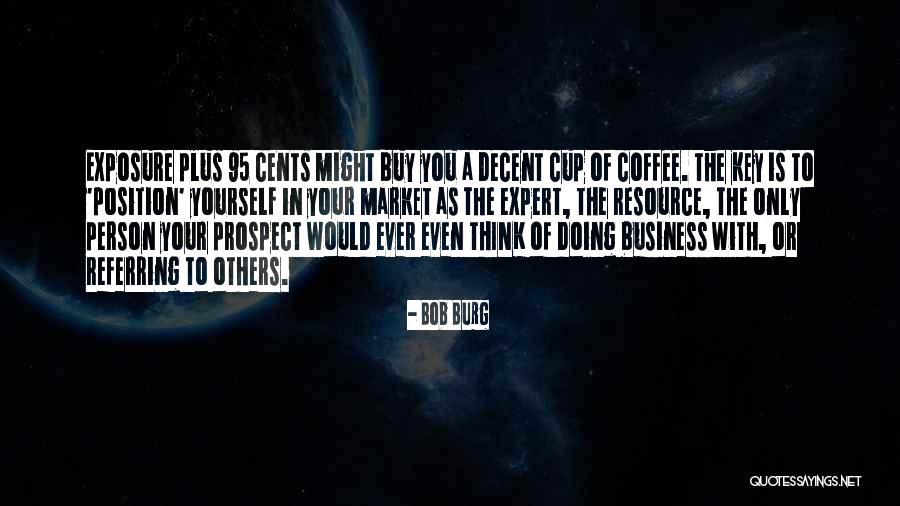
Exposure plus 95 cents might buy you a decent cup of coffee. The key is to 'position' yourself in your market as the expert, the resource, the only person your prospect would ever even THINK of doing business with, or referring to others. — Bob Burg
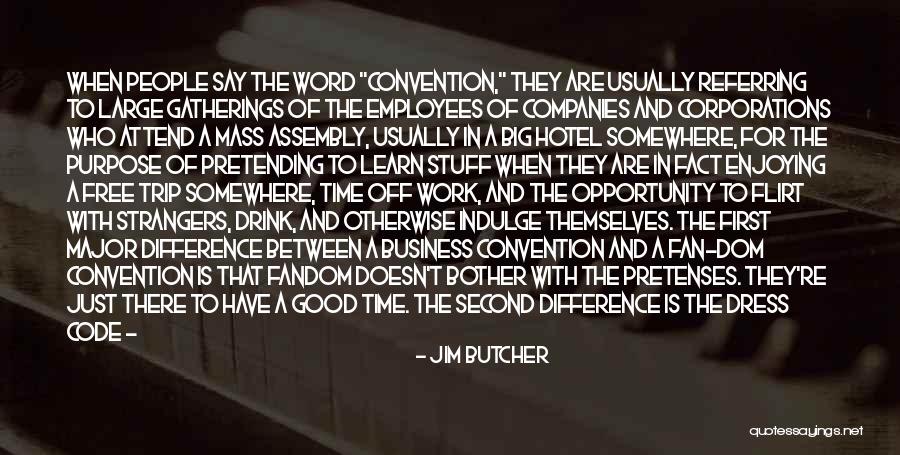
When people say the word "convention," they are usually referring to large gatherings of the employees of companies and corporations who attend a mass assembly, usually in a big hotel somewhere, for the purpose of pretending to learn stuff when they are in fact enjoying a free trip somewhere, time off work, and the opportunity to flirt with strangers, drink, and otherwise indulge themselves. The first major difference between a business convention and a fan-dom convention is that fandom doesn't bother with the pretenses. They're just there to have a good time. The second difference is the dress code - the ensembles at a fan convention tend to be considerably more novel. — Jim Butcher
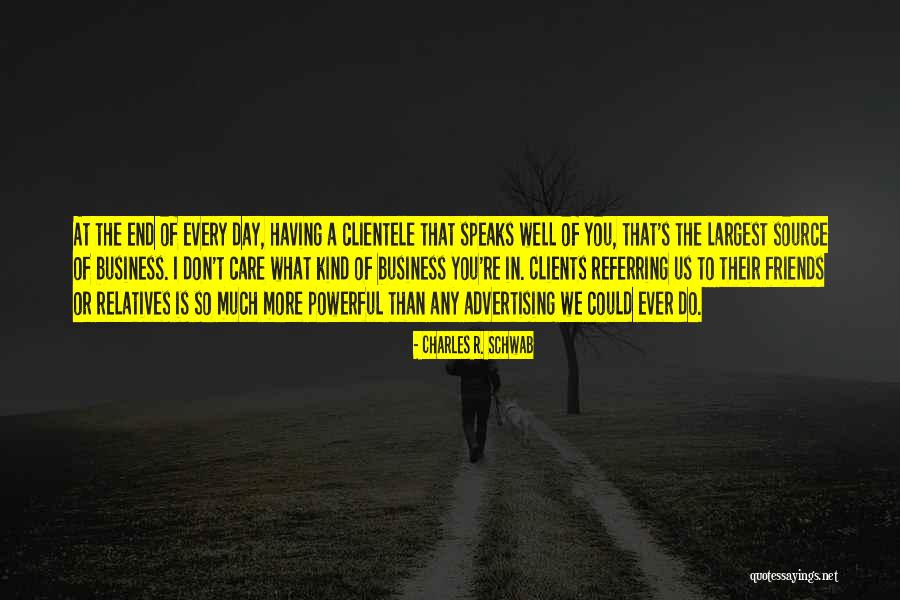
At the end of every day, having a clientele that speaks well of you, that's the largest source of business. I don't care what kind of business you're in. Clients referring us to their friends or relatives is so much more powerful than any advertising we could ever do. — Charles R. Schwab
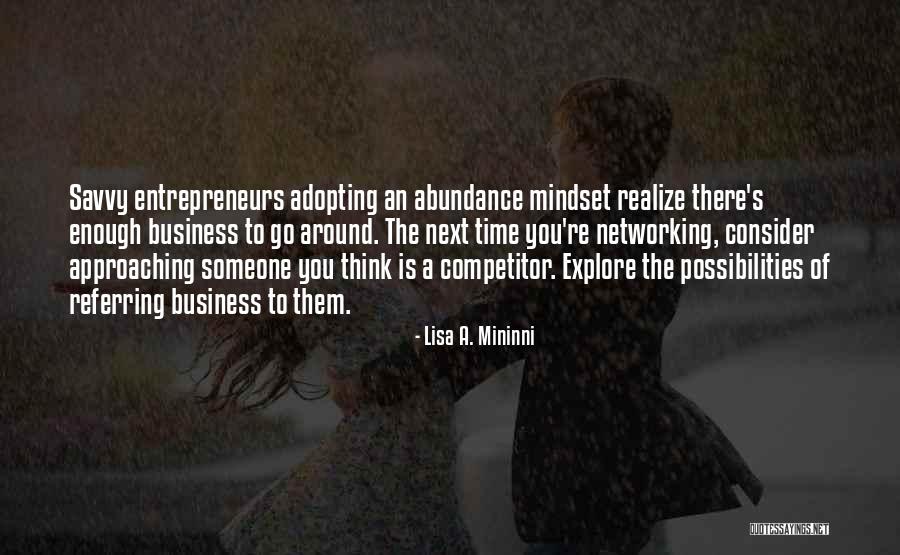
Savvy entrepreneurs adopting an abundance mindset realize there's enough business to go around. The next time you're networking, consider approaching someone you think is a competitor. Explore the possibilities of referring business to them. — Lisa A. Mininni
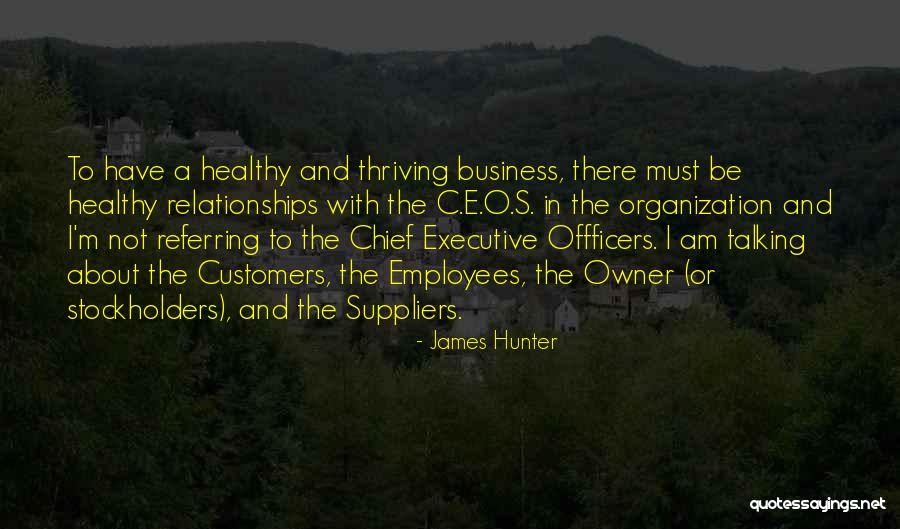
To have a healthy and thriving business, there must be healthy relationships with the C.E.O.S. in the organization and I'm not referring to the Chief Executive Offficers. I am talking about the Customers, the Employees, the Owner (or stockholders), and the Suppliers. — James Hunter
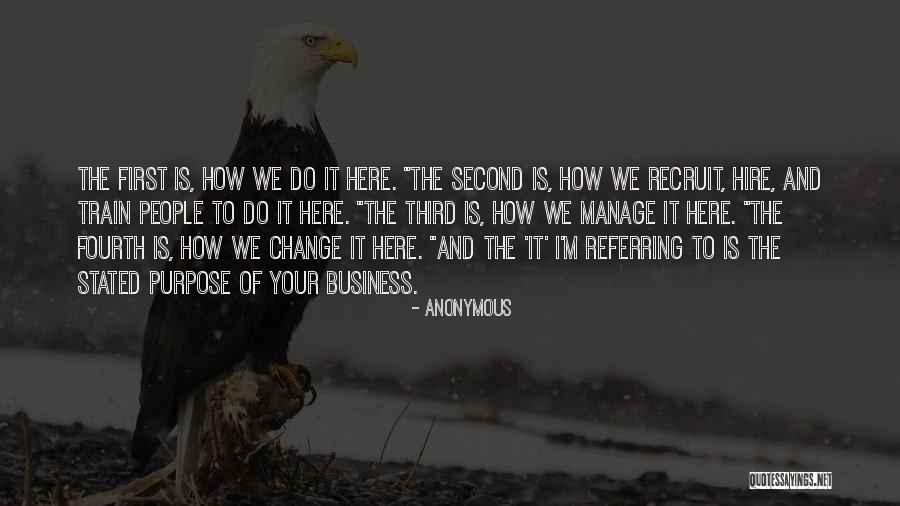
The first is, How We Do It Here. "The second is, How We Recruit, Hire, and Train People to Do It Here. "The Third is, How We Manage It Here. "The Fourth is, How We Change It Here. "And the 'It' I'm referring to is the stated purpose of your business. — Anonymous
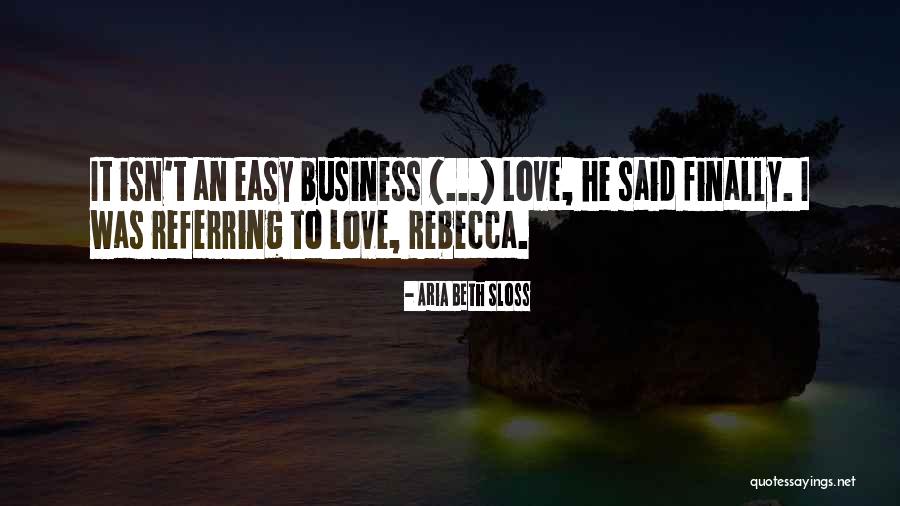
It isn't an easy business (...) Love, he said finally. I was referring to love, Rebecca. — Aria Beth Sloss
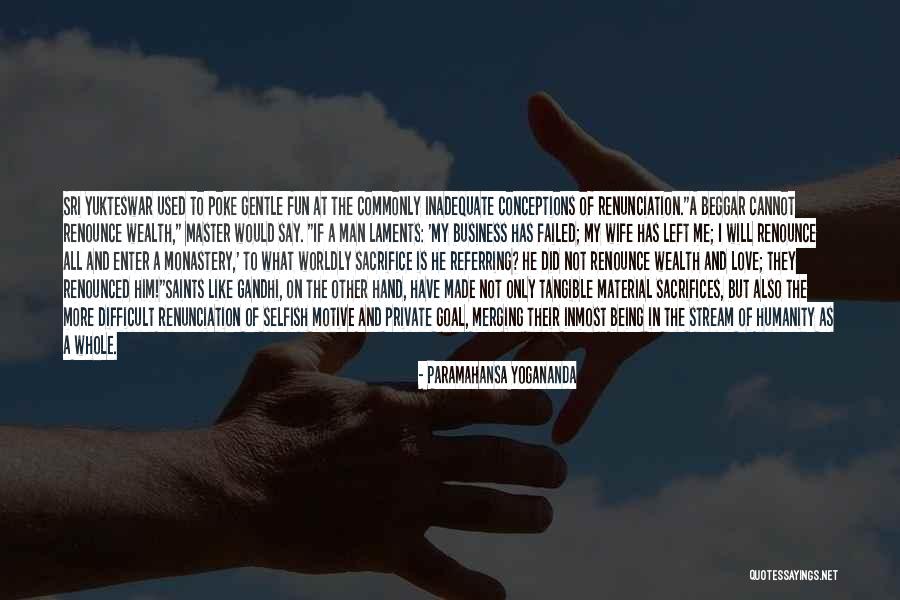
Sri Yukteswar used to poke gentle fun at the commonly inadequate conceptions of renunciation."A beggar cannot renounce wealth," Master would say. "If a man laments: 'My business has failed; my wife has left me; I will renounce all and enter a monastery,' to what worldly sacrifice is he referring? He did not renounce wealth and love; they renounced him!"Saints like Gandhi, on the other hand, have made not only tangible material sacrifices, but also the more difficult renunciation of selfish motive and private goal, merging their inmost being in the stream of humanity as a whole. — Paramahansa Yogananda
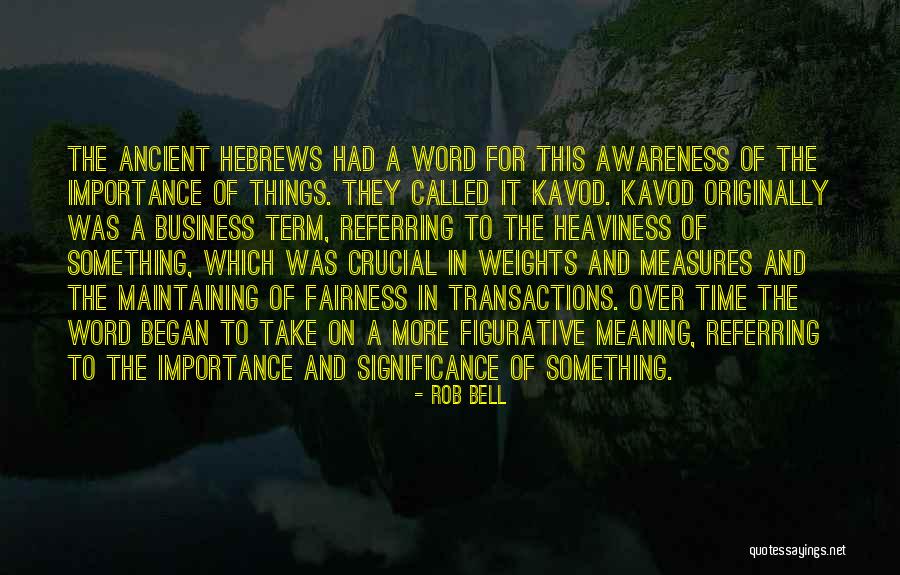
The ancient Hebrews had a word for this awareness of the importance of things. They called it kavod. Kavod originally was a business term, referring to the heaviness of something, which was crucial in weights and measures and the maintaining of fairness in transactions. Over time the word began to take on a more figurative meaning, referring to the importance and significance of something. — Rob Bell





